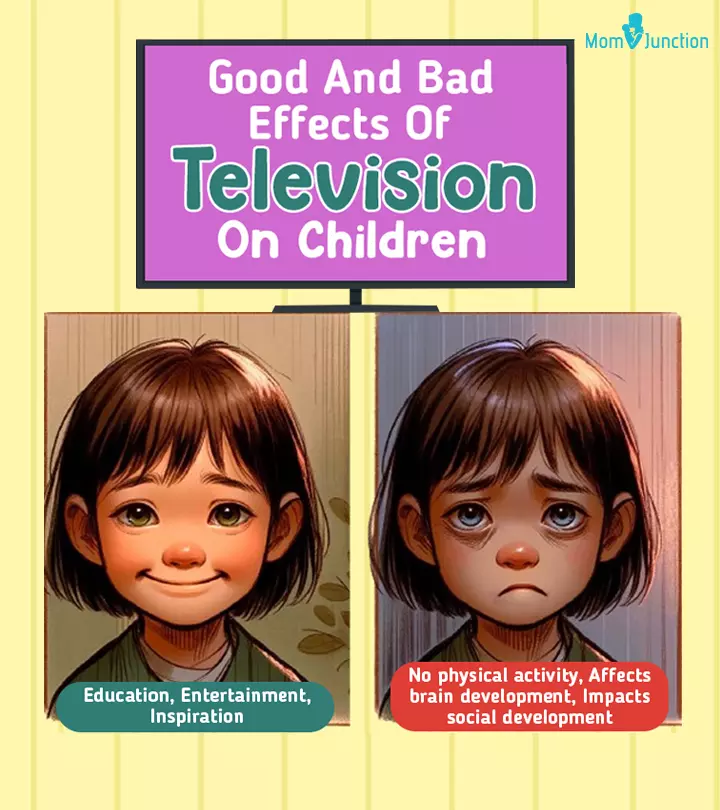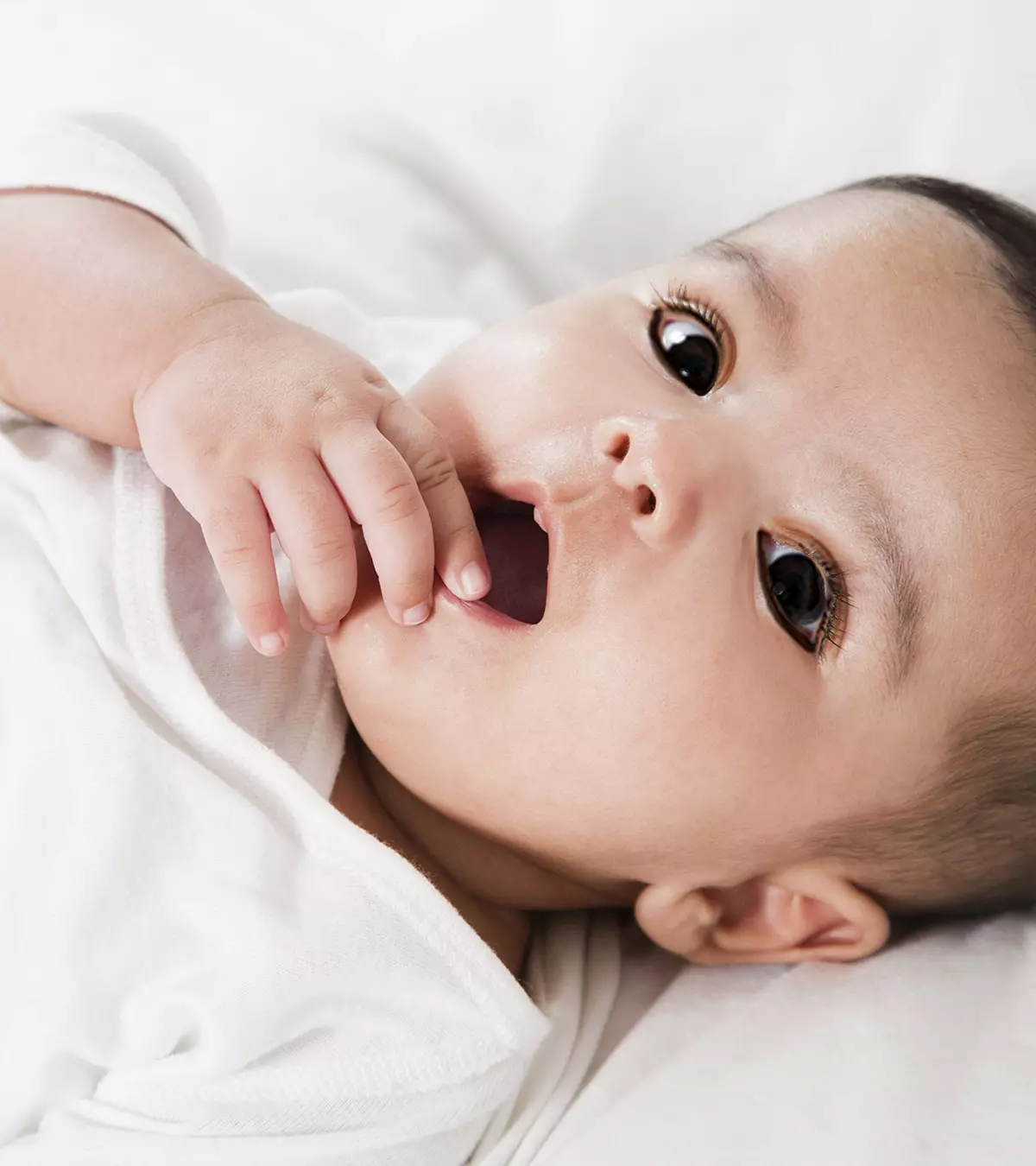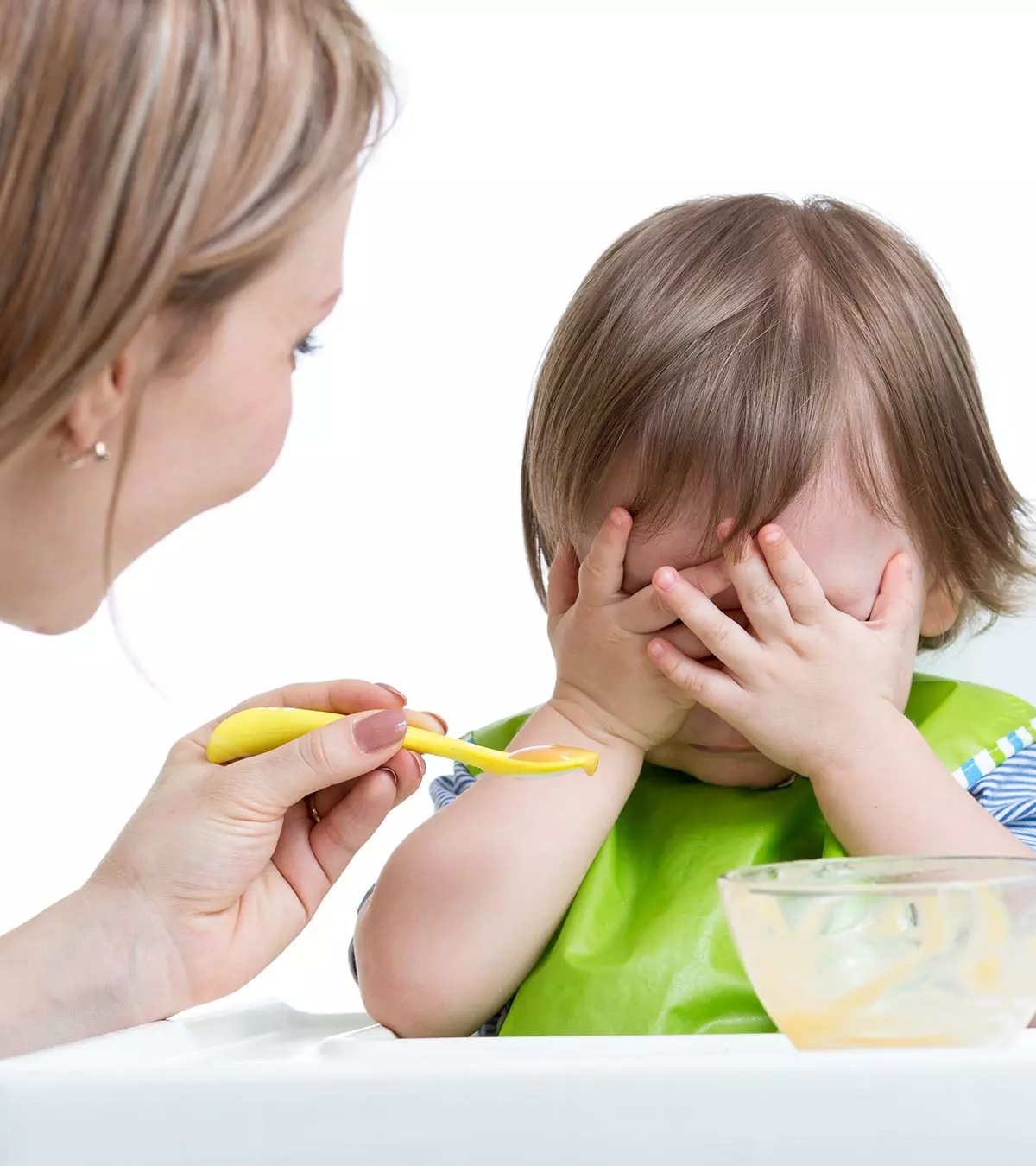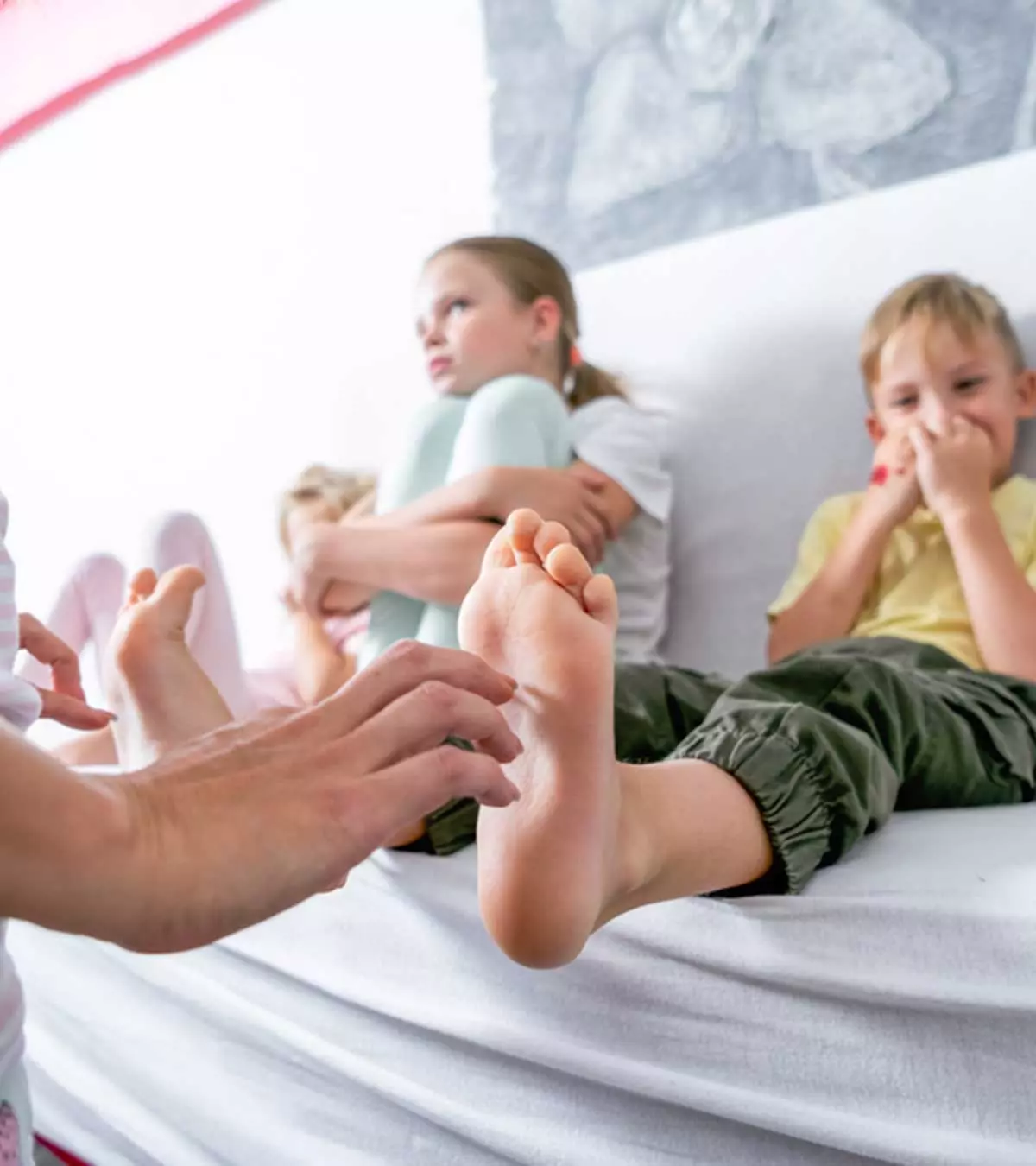
Image: ShutterStock
For generations, parents have tickled their children. You may think that tickling kids is one of the quickest ways to improve their moods and bond through physical touch. But have you ever considered that your child may not be having as much fun as you believe? Even if your intentions are genuine, tickling them could be harmful.
Tickling may elicit chuckles more quickly than any other game, but that does not guarantee your child is having fun. They may laugh and seem to be expressing joy because they can’t help themselves and cannot tell you to stop. It can have a lasting impact on children, and many may not equate tickling with playfulness or a happy experience. It is important to recognize a child’s feelings and encourage an atmosphere of consent regarding all forms of physical affection shown at home. Not all children respond positively to tickling, so being understanding of them is crucial for their emotional safety.
Read this post to learn about the types of tickling and how tickling can be harmful to children.
Key Pointers
- While tickling can be fun for adults, it could be downright uncomfortable for children.
- The laughter during tickling is reflexive and is not a sign of enjoyment.
- Laughing uncontrollably due to continuous tickling can make breathing difficult for the child.
- Tickling a child against their wish could hurt them and cause trust issues.
Types Of Tickling
Our skin has different sensory receptors (cells and nerves) that help us feel different kinds of sensations. Tickling generally refers to two types of sensations, namely (1) (2)
1. Knismesis

This refers to the ticklish or itchy sensation you get due to a light touch in any part of the body. Many animals, including cats and dogs, have the tickle reflex. The best example of this tickle sensation is the feeling you get when a feather trails along your skin.
2. Gargalesis
This happens due to a heavier touch to ticklish parts of the body — the soles of the feet, underarms, the neck, the ribs, and the tummy are some of the tickle spots. Touching these parts of the body induces involuntary laughter as a tickle response.
 Experts say
Experts sayIs Tickling A Child Harmful?

In the 19th century, theorists, such as Charles Darwin, had suggested that tickling was connected with humor. However, scientists have debunked this theory and are of the view that tickling is more of a reflex (2).
Tickling is a game we usually play with children. However, children often feel helpless and out of control while being tickled. They cannot tell you to stop because they cannot draw breath, and you are likely to mistake their laughing for encouragement.
Many children feel paralyzed due to tickling and go to any lengths to protect themselves from being tickled. In fact, many adults state that they have felt very uncomfortable while being tickled as children (3).
While we, adults, might consider tickling as enjoyable for children, and while our intentions might be good, tickling can be downright uncomfortable for your child.
Larah Ritchie, a freelance graphic designer and mother, reflects on her childhood experience with tickling. She shares, “As a little kid I was super ticklish. It follows that I was also super tortured. I have emotion-filled childhood memories of being tickled against my will. I remember feeling conflicted about not wanting to be tickled because the person tickling me (whether a friend, a cousin or a parent) was harmlessly trying to show their affection in a fun and loving way. I felt like a grumpy party-pooper when I insisted they stop. I remember allowing the tickling to go on until my giggles and pleas turned to a lump in my throat and tears. And sometimes actual, stupid, unwelcome crying. Which was also frustrating and confusing. I didn’t realize until much, much later in life (like in my 40s) that the emotion fighting to be seen through my giggles, was a natural defense to relinquishing control of my body (i).”
 Trivia
TriviaWhy You Shouldn’t Assume Every Kid Loves Being Tickled
Like every other physical activity that requires contact with another human, tickling should also require consent. However, as tickling is often seen as a form of play or amusement, many people do not think asking for a child’s permission before touching them is necessary.
The following are a few reasons why you shouldn’t assume your child likes being tickled.
1. They cannot stop giggling because they cannot help it

Even if they hate it, your children will be giggling helplessly and will not be able to tell you that they are not enjoying it. The laughter that occurs with tickling is reflexive and is not the same as what happens after listening to a good joke (4).
2. It violates their right to bodily autonomy
We have heard a lot about consent and how touching someone without their consent is a violation of their bodily integrity. It is necessary to ask whether your child is okay with being tickled.
An anonymous mother of two shares her opinion regarding tickling children in her blog named ‘On the Fence,’ “I personally hate tickling, I have bad memories about it from my childhood, I can’t stand anyone even hinting at trying to tickle me. Do I want my kids to have the same memories in the future? Definitely not, so we don’t abuse tickling in our house and only do it for a short while if kids ask for it (ii).”
3. It can be humiliating
Any person who is being tickled loses self-control. They are unable to state what they want, and they struggle to regain control. This can be humiliating for a child. Even if your intentions are good, the result may be hurtful to the child.
 Research finds
Research finds4. Tickling can cause medical complications
When a child is tickled continuously, they start laughing uncontrollably and are unable to talk or breathe. In some cases, they might even lose consciousness. As they cannot tell you to stop, you might not realize that they are in trouble.
5. Tickling creates trust issues
If your child does not like to be tickled, tickling them against their wish might create lifelong trust issues. As they grow older, they may equate tickling to physical abuse, develop a major mistrust for people touching them, and try to avoid crowded places for fear of being touched (5).
If you have been tickled as a child and enjoyed it, you might find it difficult to fathom why you must not tickle your child. However, every child is different. While you might have enjoyed a tickle monster game or a tickle fight experience, another child might not. You should always ask your child for consent and let them set boundaries before tickling them.
Signs A Child Does Not Enjoy Being Tickled
If a child is uncomfortable being tickled, they may display noticeable signs of discomfort. Here are some common signs to watch for (7).
- Saying no or asking to stop: If a child says “stop” or “no” it’s a clear sign they are not comfortable. Even if they are laughing, their words should be taken seriously.
- Trying to escape or block the tickling: A child who squirms, pushes hands away, or tries to cover ticklish areas shows they want the tickling to stop. If they stiffen their body instead of relaxing, it’s another clear sign of discomfort.
- Showing frustration or distress: Crying, frowning, or displaying frustration or anger indicates that the child isn’t enjoying the tickling.
- Forced or unnatural laughter: If a child’s laughter seems strained, uncomfortable, or forced, and their facial expression appears tense instead of joyful, they might not be enjoying the experience. Genuine fun is reflected in natural laughter.
- Making loud noises: If a child makes loud noises, such as high-pitched screams or yells, during tickling, it may indicate distress rather than enjoyment.
Frequently Asked Questions
1. Is tickling children appropriate behavior?
Tickling children may appear harmless and fun, but it’s essential to consider consent, boundaries, safety, and context. If these pointers are not considered, tickling might be considered inappropriate.
2. What are the psychological effects of tickling children?
The psychological effects of tickling vary depending on the child’s personality, developmental stage, and experiences, so it’s crucial to approach it with sensitivity and care. Ensuring tickling is positive and consensual to prevent it from having any negative psychological effects on the child.
3. What age is appropriate for tickling children?
You can tickle babies after they are six months old because they begin to make sounds to show happiness or discomfort. If they do not like the tickling, they may let you know (6).
Tickling kids may not be enjoyable and can make them feel helpless since they have no control over their bodies. Their giggle is involuntary and may make breathing difficult for them. A child can even lose consciousness if tickled for a long duration. In addition, if a child feels uncomfortable while being tickled, it can be harmful for them. Hence, you should try other ways to make them smile and laugh. Telling jokes, playing games, or having an enjoyable moment together can help you bond with your children and make them love you all the more.
Infographic: What You Should Know About Tickling Children
Although tickling brings out laughter, certain dos and don’ts must be followed for children. We may not think much of it, but there is a thin line between tickle fun and torture. So learn when and how to draw the line between the two and maintain the fun of tickling children. Illustration: Momjunction Design Team
Illustration: Reasons Why Tickling Kids Can Be Harmful
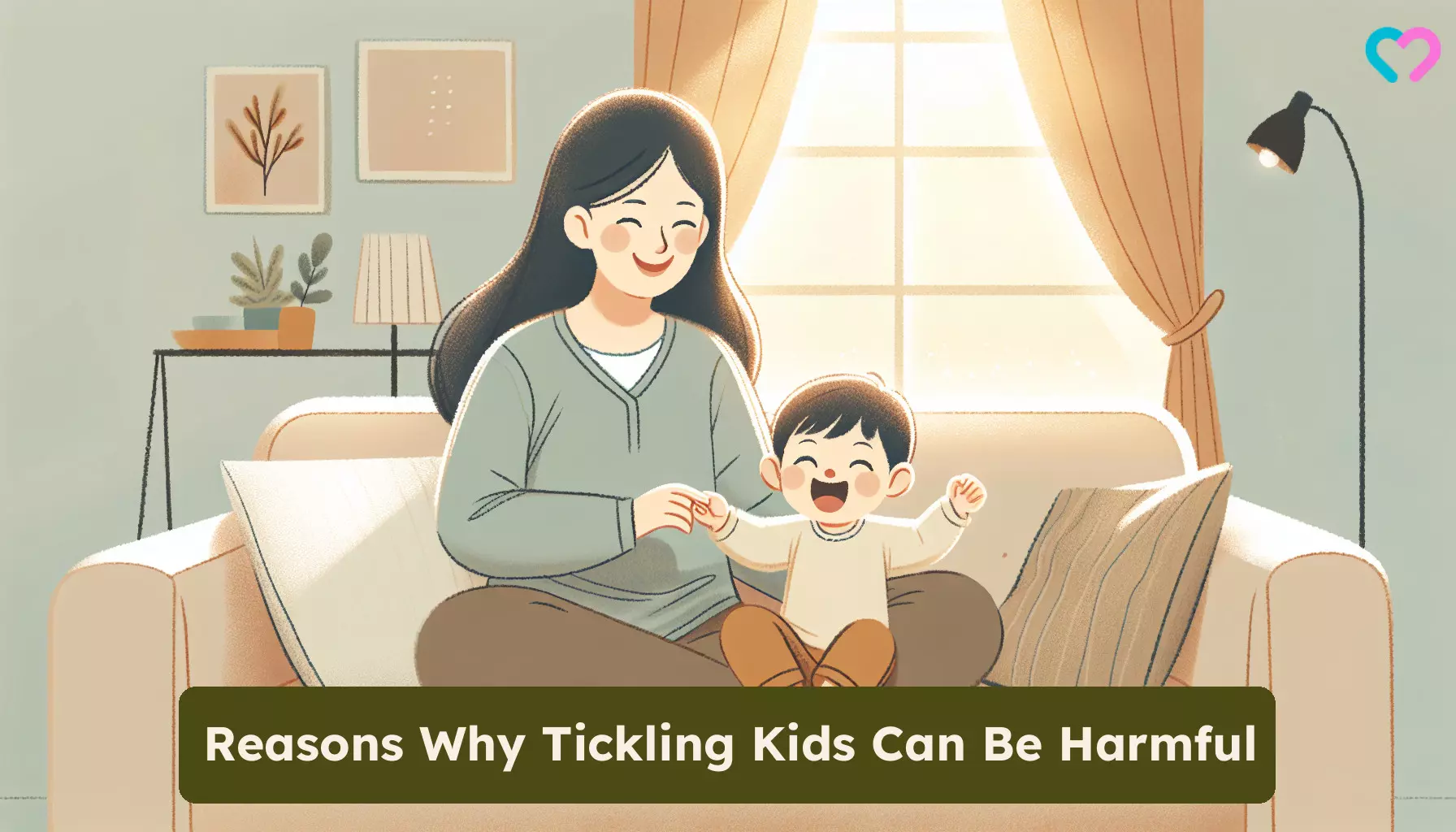
Image: Dall·E/MomJunction Design Team
Personal Experience: Sources
MomJunction articles include first-hand experiences to provide you with better insights through real-life narratives. Here are the sources of personal accounts referenced in this article.
i. Will the tickle monster evolve in a culture of consent?
https://medium.com/@LarahRitchie/will-the-tickle-monster-evolve-in-a-culture-of-consent-de34bc4b3b51
ii.To tickle or not to tickle?
https://onthefenceadvocacy.wordpress.com/2013/01/30/to-tickle-or-not-to-tickle/
References
1. Why Are People Ticklish?; Cleveland Clinic
2. Christine R. Harris; The mystery of ticklish laughter; American Scientist (1999).
3. Tickling Kids Can Do More Harm Than Good; Hand in Hand Parenting
4. Christine R. Harris and Nancy Alvarado; Facial expressions, smile types, and self-report during humour, tickle, and pain; Cognition and Emotion (2005).
5. Tickling: Just Fun or a Kind of Abuse?; Kars4Kids
6. Important Milestones: Your Baby By Six Months; CDC
7. Tickling: The Power of Consent in Play; Neuralive Counselling & Neurofeedback
Community Experiences
Join the conversation and become a part of our nurturing community! Share your stories, experiences, and insights to connect with fellow parents.
Read full bio of Dr. Neema Shrestha
Read full bio of Swati Patwal
Read full bio of Rohit Garoo
Read full bio of Shinta Liz Sunny
















